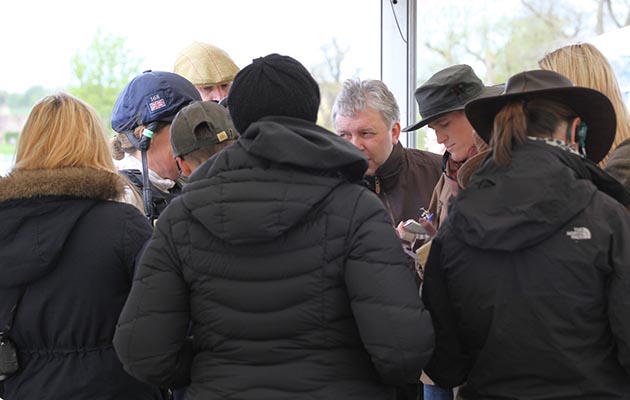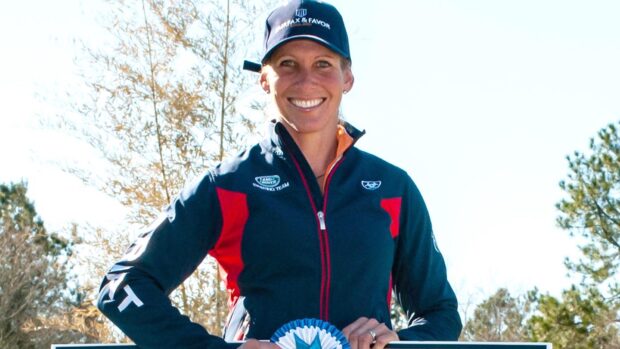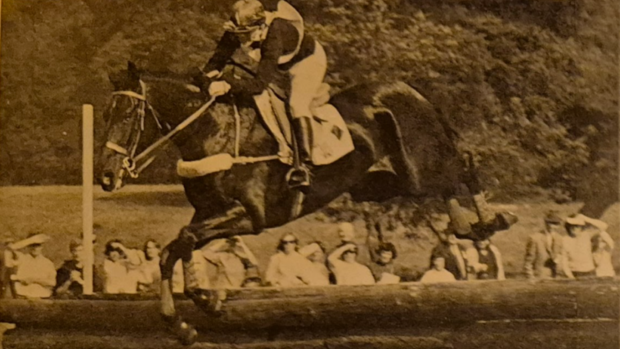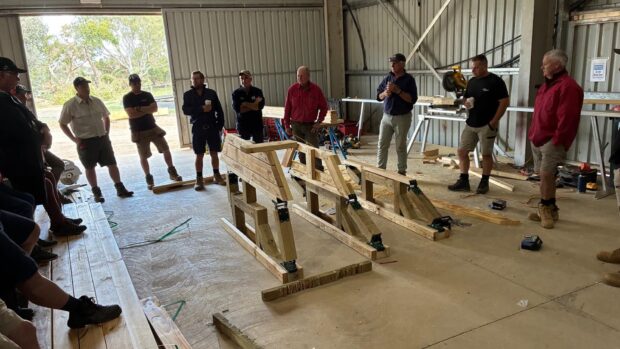I felt compelled to write this blog after my friend and former H&H colleague Catherine Austen pointed me to Jonathan Agnew’s comments in his interview with The Gaitpost last week. You can read them in full there, but this is the part I am chiefly discussing:
“My assessment from Blair, for example, is I believe the equestrian media are going to have to become a little more penetrating perhaps. It surprised me that at the press conferences that there were only one or two questions asked. I believe the press needs to be more critical and whilst I am not good enough or knowledgeable enough now, I think for the sport to get more coverage, the media needs to be inquisitive and analytical…
“It bemused me why, after Charlotte Dujardin’s win at the Europeans in Aachen, where she herself recognised that it wasn’t her best performance, that there was nothing on the news about it… in my eyes, it should have received a double page spread. But to get that sort of coverage you need to ask more probing questions, maybe not at a press conference for everyone to hear, but the athletes are going to have to accept a more inquisitive line of questioning to get the sport out there.”
My response, in summary, is this: equestrian journalism has much to learn from mainstream sports coverage, but please don’t judge us on what you hear in press conferences.
Let me explain. Press conferences can be great — occasionally they are lively affairs with great quotes flying about. Sometimes in that moment, perhaps with a bit of distance from their performance, a rider finds a good way to summarise the day. They are very useful when you haven’t been able to catch a rider earlier for one reason or another. Depending on what sort of coverage a media organisation is doing and how many staff it has at an event, this may be the only opportunity for some outlets to speak to the riders.
But in general, press conferences are not where the real action happens in equestrian journalism, certainly not in eventing. We are lucky enough at most big events to have a mixed zone where press can speak to riders immediately after their test or round. This is a brilliant opportunity to find out what’s really happening, when the mud and sweat are still drying on the riders’ faces and they are still high with the thrill of riding across country or devastated by a bad dressage test. Riders are mostly generous with their time and there are rarely limits on how long you can speak to them in this area.

On a quick count, I reckon I conducted more than 60 interviews in the mixed zone at Blair during four days, with riders of eight different nationalities. Riders open up more in that one-to-one conversation and, crucially, you can get a quote which is exclusive or which you share with only one or two other writers.
Horse & Hound comes out on Thursday, four days after the weekend sport we are covering. The event may have been on the TV, it may have been in the daily papers, it will certainly have been reported in several places online. We therefore strive always to give our readers something extra — insight which they wouldn’t find in the web blogs, new quotes they haven’t read already.
As such, we always ask our real questions in the mixed zone, never in a press conference for “everyone to hear”, as Jonathan himself says. If I ask a question at a press conference (and I ask far more than most), I usually do so either as a favour to the person conducting the press conference, so they feel less awkward, or because I feel bad the riders have come to see us and no-one has any questions.
But I usually deliberately keep the questions bland, particularly if I have a good exclusive comment from the mixed zone, which I am jealously guarding for my magazine report. I don’t want that insight to come out at the press conference so it can be tweeted and blogged round the world four days before my report comes out.
There’s also an element about knowing your market. I took a calculated risk that I might miss the final press conference at Blair so I could wait in the mixed zone to speak to the British riders after their medal ceremony. I had one-to-one conversations with Pippa Funnell and Kitty King, gaining a useful exclusive quote from each about their horse and their training methods. That may not be interesting to Jonathan or his audience, but we believe it is the sort of insight H&H readers seek.
Ultimately, I missed the first half of the final press conference to get those comments. But I’d already spoken to all the German team and the French individual bronze medallist (the only riders in the press conference) and I could catch up with anything I missed in a press release or web report.
Are my mixed zone questions probing? Sometimes. Sometimes not. Sometimes you are dealing with a language barrier and you have to play around to get even the most basic background! But I know I can press riders when it’s needed — I asked William Fox-Pitt at Blair whether Bay My Hero was physically fine in his dressage test. I asked it so many times in so many different ways that William — very politely, very reasonably — eventually said he “didn’t want to go on about it” and closed the conversation down. I got some great exclusive quotes for my report from this line of questioning. I haven’t seen anything similar in other reports. Even if William had been in the press conference, there’s no way I’d have thrown that out there for every other journalist and blogger to snaffle up.
I’m definitely not saying equestrian journalism is perfect or that we can’t learn from other strands of the media. I find it interesting working alongside Lee Sobot of the Yorkshire Post at Bramham — his usual beat is racing and football and he happily admits to not knowing much about eventing. But he asks different questions to me and gets different answers — I often use some comments he has prompted from the riders in my report.
Similarly, it was fascinating to watch Ian Stafford in action for the Daily Mail when he came to the Rolex Grand Slam showdown at Badminton in 2013. The resulting piece was very different to anything the equestrian press would write.
Yes, we equestrian journalists can be cautious. But I don’t think we are gutless or lacking in showing our inquisitive or analytical side.
I don’t know what the answer is to getting more equestrianism in the daily papers, but it’s harsh to lay the blame on our equestrian daily paper writers — we constantly hear them begging their editors for space, pleading their case, being given 150 words if they’re lucky. One of these writers is Pippa Cuckson, who has been lauded for her tireless and incredibly brave pioneering journalism in endurance welfare in both The Telegraph and H&H. To suggest she is not probing or inquisitive enough is crazy.
Jonathan, come to the mixed zone and let’s talk about it. Ask your probing questions — I’d like to hear them and hence learn more. But do it in the mixed zone where you can benefit from the results, not at the press conference for everyone to hear.
Pippa




